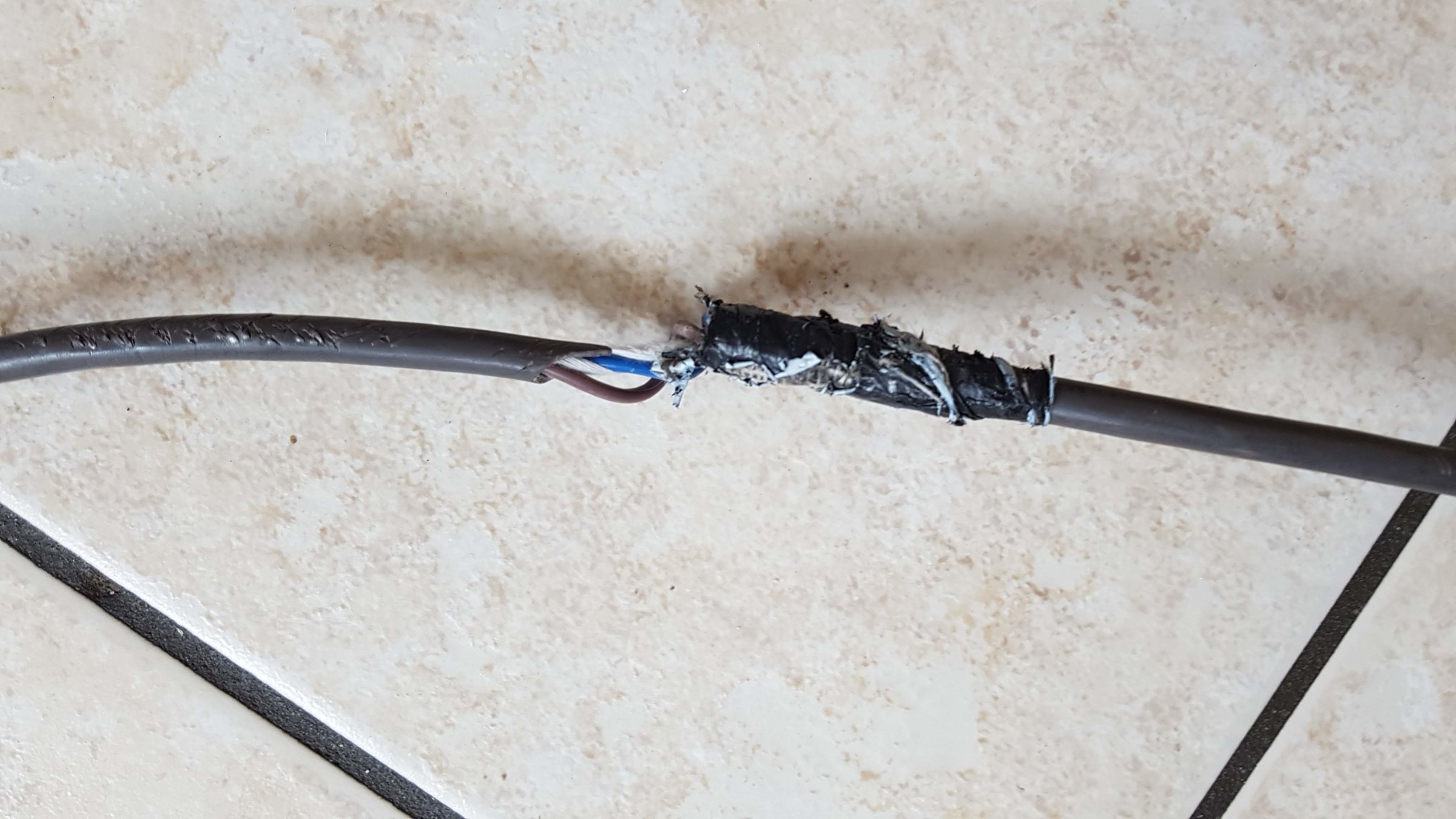We found damage in our rental property recently and determined the tenants have a rabbit and it has been nibbling its way through carpet, skirting and plaster walls. However, it has also damaged the outer sheath on the power cable on the tenants own lamp and vacuum cleaner as you can see in the following photos.
It looks like the vacuum cable has been damaged and patched up a couple of times.
I have discussed the damage with the tenant and verbally warned them about using these appliances without replacing the power cables and I'm just about to put it in writing, however, a quick Google hasn't really found anything tangible about what this kind of cable damage could cause.
It seems to me that the damaged cables could result in electrocution if any of the wire cores are exposed (I couldn't see this) or fire, and it may also affect insurance policies (knowingly using an appliance with a damaged cable).
Am I correct to "forbid" the tenants from using these appliances in my house or am I being unreasonable? Could these cables actually cause a fire and if so, how would this happen?
Thanks for your advice.
It looks like the vacuum cable has been damaged and patched up a couple of times.
I have discussed the damage with the tenant and verbally warned them about using these appliances without replacing the power cables and I'm just about to put it in writing, however, a quick Google hasn't really found anything tangible about what this kind of cable damage could cause.
It seems to me that the damaged cables could result in electrocution if any of the wire cores are exposed (I couldn't see this) or fire, and it may also affect insurance policies (knowingly using an appliance with a damaged cable).
Am I correct to "forbid" the tenants from using these appliances in my house or am I being unreasonable? Could these cables actually cause a fire and if so, how would this happen?
Thanks for your advice.





